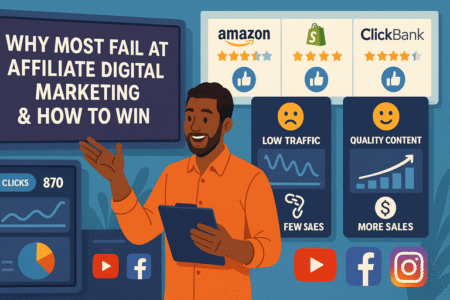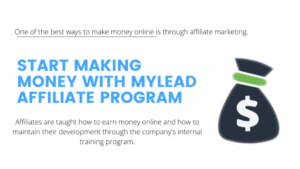Table of Contents
Referral Program Ideas! In an era where businesses are constantly seeking innovative ways to engage customers and stimulate growth, one tactic stands out for its proven effectiveness: referral programs.
Referral program ideas are much more than just a marketing strategy. They create a symbiotic relationship between your brand and your customers, giving them a stake in your success.
Why Referral Program Ideas are Essential for Business Growth
As the digital age advances, businesses must innovate and adapt to stay competitive. One area that has shown significant promise in driving business growth is the development and implementation of referral program ideas.
These programs play a pivotal role in cultivating strong customer relationships and building a robust customer base.
The Impact of a Strong Referral Program
The power of a well-designed referral program should never be underestimated. It does not only bring new customers, but it also solidifies relationships with existing ones, fostering a cycle of growth that benefits all parties involved.
Consider this: a study by Nielsen found that people are four times more likely to purchase when referred by a friend. The inherent trust in personal networks gives referral marketing a level of credibility that’s hard to achieve through other channels. This trust can convert into sales and result in a higher lifetime value compared to customers acquired through other marketing methods.
A robust referral program also enhances brand reputation. It fosters a sense of community among your customers, which in turn amplifies the reach and credibility of your brand. When customers become advocates, they willingly share your brand’s narrative, effectively becoming an extension of your marketing team.
Lastly, the data gathered from referral programs can provide valuable insights into customer behavior, preferences, and trends. These insights can drive decision-making, product development, and marketing strategies, further bolstering business growth.
Role of Innovative Referral Programs in Boosting Customer Engagement
Customer engagement is a critical factor in the success of any business, and innovative referral program ideas can play a pivotal role in this area. These programs don’t just promote transactions; they encourage interactions, fostering an active and engaged community around your brand.
By offering incentives and rewards, referral programs engage customers in a fun and rewarding way. When these rewards are creative and truly valuable, they can boost customer participation significantly. As customers engage more with the referral program, their connection to the brand strengthens, leading to higher customer retention and satisfaction rates.
Moreover, innovative referral programs tap into the social nature of people. They encourage customers to share their positive experiences with their network, creating a ripple effect of engagement. This kind of organic, word-of-mouth marketing is not only highly effective but also helps in building stronger customer relationships.
The Top 10 Innovative Referral Program Ideas
In the rapidly evolving world of digital marketing, standing out with unique and compelling referral program ideas can be a game-changer for businesses of all sizes.
Let’s delve into the first of our top 10 innovative referral program ideas – a Tiered Rewards System.
Referral Program Idea 1: Tiered Rewards System
A Tiered Rewards System is a referral program idea that can be especially effective in motivating customers to make more frequent and higher-quality referrals. In its essence, this concept entails offering varying levels of rewards depending on the number, frequency, or value of the referrals a customer makes.
Imagine this as a ladder of incentives. On the first rung, a customer might receive a discount for their next purchase after making a single referral. As they climb the ladder, making more referrals, they unlock increasingly attractive rewards. These could include exclusive products, significant discounts, or even experiences such as tickets to events.
The main benefit of a tiered rewards system is its capacity to motivate sustained customer engagement. Because the rewards escalate in value, customers have a strong incentive to continue referring their friends and family to your business. This type of system encourages customers to interact with your brand on an ongoing basis, fostering long-term loyalty.
Moreover, a tiered rewards system can help you identify your most dedicated brand advocates. These are customers who are willing to actively promote your brand to their networks in exchange for the most exclusive rewards. Cultivating relationships with these customers can lead to high-quality referrals and significant business growth.
Lastly, a tiered rewards system can be tailored to align with your business objectives and customer preferences. For instance, if your goal is to attract high-value customers, you could design your reward tiers based on the lifetime value of the referred customers. If your aim is to encourage frequent referrals, you could set the tiers based on referral frequency.
Referral Program Idea 2: Non-Monetary Incentives
Non-monetary incentives provide a fresh, creative approach to referral program ideas. While discount codes or cash back are common rewards in referral programs, non-monetary incentives can offer a unique twist that further engages customers and enriches their connection to your brand.
Non-monetary incentives include anything from early access to new products, special recognition on your website or social media platforms, to exclusive content or experiences. For example, a company might offer a masterclass video series for a successful referral, a personal thank-you message from the CEO, or the opportunity to have a product named after the customer.
The beauty of these non-monetary rewards is their versatility and their potential to create a deeply personal connection between your brand and the customer. They demonstrate that the relationship extends beyond mere transactions, adding a layer of emotional value to the referral program.
Additionally, non-monetary incentives can lead to organic storytelling about your brand. When a customer gets to name a product or receives a shout-out on your social media, they’re likely to share this exciting experience with their network. This can result in authentic, word-of-mouth marketing that amplifies your brand’s reach and reputation.
Moreover, non-monetary incentives can be particularly effective if they align well with your brand values and your target audience’s interests. If you operate in the fitness industry, for example, offering a free personal training session could be a more appealing reward for a referral than a simple discount.
Referral Program Idea 3: Gamified Referral Programs
Gamification is a powerful tool for driving customer engagement, and incorporating it into your referral program can yield impressive results. Essentially, gamified referral programs involve incorporating game design elements into your referral program, turning the process of making referrals into a fun and engaging activity.
Gamified referral programs often include elements such as points systems, leaderboards, badges, or achievements. For instance, customers might earn points for each referral they make, with bonus points for referring a certain number of people within a specific time period. They could then redeem these points for rewards, adding an extra layer of incentive to the referral process.
The beauty of gamified referral programs is their capacity to tap into people’s inherent love for games and competition. By turning referrals into a game, customers are more likely to be motivated to participate actively, especially if they can see their progress or compare it to others.
Moreover, gamification can add an element of suspense and excitement to your referral program. If customers don’t know exactly what they’ll earn until they’ve made a referral, they may be more intrigued and motivated to participate.
Furthermore, gamified referral programs provide multiple opportunities for positive reinforcement, as customers can earn rewards at numerous stages throughout the game. This constant validation can enhance their sense of achievement and loyalty towards your brand.
Finally, it’s worth noting that a successful gamified referral program should be simple and easy to understand. It’s essential to clearly communicate how customers can earn points and what they can do with them. This way, you can ensure that your referral game is accessible and appealing to as many customers as possible.
Referral Program Idea 4: Social Media Referrals
In the digital era, social media has become a central hub for conversations, connections, and content sharing. Consequently, integrating social media into your referral program ideas can be a powerful strategy to maximize customer engagement and referral opportunities.
Social media referrals involve encouraging your customers to share about your brand or products on their social media platforms in exchange for rewards. This can be as simple as a customer sharing a referral link, posting a photo of your product, or creating a testimonial video about your services.
The strength of social media referrals lies in their ability to capitalize on the vast networks and influential power of social media users. When a customer shares a positive experience or endorsement of your brand on social media, it can reach hundreds or even thousands of potential customers. This peer-to-peer marketing approach often holds more credibility and influence than traditional advertising.
Moreover, social media referrals can enhance your brand visibility and online presence significantly. They can also generate user-generated content, which adds authenticity to your brand image and provides valuable content for your own social media channels.
Furthermore, social media platforms provide tools to track referrals and engagement, offering valuable data to inform your marketing strategies. These analytics can give insights into which types of referrals generate the most engagement, helping you to continually refine and improve your referral program.
Finally, the inherently interactive nature of social media can help to foster a sense of community around your brand. When customers share about your brand on their social media, they’re not just referring others – they’re actively engaging in a community of like-minded individuals, which can enhance customer loyalty and satisfaction.
Referral Program Idea 5: Limited Time Referral Bonuses
Limited Time Referral Bonuses add an element of urgency and exclusivity to your referral program, incentivizing customers to act swiftly for rewards. This approach creates temporary windows during which customers can earn enhanced rewards for successful referrals.
Imagine a scenario where customers usually receive a 10% discount for each successful referral. During a Limited Time Referral Bonus period, that reward could be temporarily increased to a 20% discount or a buy-one-get-one-free offer, but only for a set duration. This creates a sense of urgency as customers strive to make the most out of the special offer before it ends.
The real value of Limited Time Referral Bonuses lies in their capacity to stimulate immediate action. The ticking clock instills a sense of urgency that encourages customers to share their referral links more actively and promptly than they usually would. This can lead to a significant short-term boost in referrals and customer engagement.
Furthermore, these time-sensitive bonuses add a layer of exclusivity to your referral program. The temporary nature of the offer can make customers feel like they’re part of a select group, thereby fostering a stronger connection with your brand. This sense of exclusivity can enhance customer loyalty and make customers feel more valued.
Moreover, Limited Time Referral Bonuses can be a valuable tool for promoting specific products or services. If you’re launching a new product or trying to increase awareness about a particular service, a timed bonus can help direct your customers’ attention towards it.
Referral Program Idea 6: Community-Based Referrals
Community-based referrals put the spotlight on the power of community-building in enhancing customer engagement and fostering brand loyalty. Essentially, this approach encourages customers to introduce your brand to their own communities, creating a ripple effect of brand awareness and customer acquisition.
Community-based referrals can take many forms, such as giving customers referral codes to share within their local community groups, online forums, or social networks. The reward for successful referrals can then be something that benefits the entire community, like a group discount, a shared reward, or even a community event sponsored by your brand.
One of the main advantages of community-based referrals is their ability to tap into the natural trust and connections within established communities. When a recommendation comes from a trusted community member, it holds more weight and is more likely to lead to a successful conversion.
Moreover, community-based referrals help foster a sense of belonging and mutual benefit. When customers refer your brand to their communities and see the positive impact it has, it can strengthen their loyalty and satisfaction towards your brand. It also encourages a reciprocal relationship where the community supports the brand that supports them.
Furthermore, community-based referrals can enhance your brand’s reputation and visibility in specific communities. This can be especially beneficial if your brand aligns closely with the interests or values of these communities.
Finally, this referral strategy also offers an opportunity to get to know your customers better. Understanding the communities they belong to can provide valuable insights into their needs and preferences, enabling you to tailor your products, services, and marketing efforts more effectively.
Referral Program Idea 7: Collaborative Referral Programs
Collaborative referral programs represent a highly innovative approach in the realm of referral program ideas. They involve forming partnerships with complementary businesses or influencers to create mutually beneficial referral programs that expand customer reach and engagement.
This approach might look like a shared program between two businesses that serve a similar customer base but offer non-competing products or services. For instance, a fitness center might collaborate with a health food store to offer joint referral rewards. A customer referring a friend to the fitness center might earn points redeemable at both the gym and the health food store, providing added value to the customer while promoting both businesses.
Collaborative referral programs can also take the form of partnerships with influencers or popular figures in your industry. This might involve giving an influencer a unique referral code to share with their followers, providing both the influencer and their followers with rewards for successful referrals.
The central advantage of collaborative referral programs is their ability to significantly broaden your customer reach. By partnering with another business or influencer, you can access and appeal to their established customer base or followers, potentially multiplying your referral opportunities.
Moreover, collaborative programs allow for the sharing of resources and expertise. Both partners can contribute to promoting the program, creating marketing materials, and offering customer support. This shared responsibility can reduce costs and increase efficiency.
Furthermore, these programs can enhance your brand’s reputation and credibility. If the partner business or influencer is well-respected in their field, their endorsement of your brand can boost your brand image and trustworthiness.
Referral Program Idea 8: Charity-Based Referrals
Charity-based referrals represent a unique, value-driven approach to boosting customer engagement. This referral program idea involves aligning your business with a charitable cause, allowing customers to contribute to this cause through their referrals.
The process is straightforward: for every successful referral, you pledge a specific contribution to a charity or cause. This contribution could be a monetary donation, a commitment to a specific action (like planting a tree), or providing certain resources or services to those in need.
The key strength of charity-based referrals lies in their capacity to resonate with customers’ values and social consciousness. In the modern business landscape, many customers appreciate and prioritize businesses that make positive contributions to society. By demonstrating your commitment to a worthy cause, you can appeal to these customers and motivate them to support your brand and refer others.
Moreover, charity-based referrals can foster a sense of purpose and community among your customers. By participating in the referral program, customers are not just promoting your brand; they’re also contributing to a cause they care about. This shared purpose can build a sense of connection and engagement that extends beyond typical customer-business relationships.
Furthermore, this referral program strategy can enhance your brand reputation and visibility. Partnering with charities can lead to opportunities for co-marketing and positive publicity, boosting your brand’s presence in the public eye. Plus, the positive social impact of your referral program can differentiate your brand from competitors and foster goodwill among existing and potential customers.
Referral Program Idea 9: Product-Specific Referrals
Product-specific referrals involve creating referral incentives centered around particular products or services. This tactic involves offering specific products as rewards for successful referrals, or targeting referrals towards specific products.
For example, you might offer a free product, a discount on a specific product, or exclusive access to new product releases as a reward for successful referrals. Alternatively, you could offer enhanced rewards for referrals that lead to purchases of specific, targeted products.
The strength of product-specific referrals lies in their capacity to highlight and promote key products or services. If you have a flagship product, a new product launch, or a product you want to promote more actively, product-specific referrals can be a great way to draw customer attention to these products.
Moreover, product-specific referrals provide tangible, attractive incentives that can motivate customers to participate in the referral program. The prospect of receiving a free product, a significant discount, or exclusive access to new products can be a strong motivator for customers to refer their friends and family.
Additionally, this referral program idea can create opportunities for upselling and cross-selling. If the referral reward is a product that complements other items you offer, it can encourage customers to make additional purchases.
Furthermore, product-specific referrals can provide valuable insights into your customers’ preferences. Tracking which product incentives are most effective in generating referrals can inform your understanding of which products are most appealing to your customers.
Referral Program Idea 10: Exclusive VIP Referral Clubs
The concept of exclusive VIP referral clubs takes customer rewards to a new level by honoring your top referrers with exclusive benefits and status recognition. This unique approach among referral program ideas is designed to reward those customers who bring in the most referrals, turning them into VIP members of an exclusive club.
In a VIP referral club, top referrers are rewarded with benefits such as additional discounts, early access to new products or sales, exclusive events or experiences, or personalized customer service. These rewards can offer significant value and, most importantly, an enhanced sense of recognition and appreciation.
The allure of becoming part of an exclusive club can be a powerful motivator for customers. Not only does it provide tangible benefits, but it also gives customers a sense of prestige and special treatment. This can further strengthen their loyalty to your brand and motivate them to continue referring more people.
One of the major strengths of this approach is its capacity to cultivate brand ambassadors. By rewarding your top referrers in this way, you nurture their enthusiasm and loyalty, encouraging them to continue spreading the word about your brand. This can lead to a significant increase in customer acquisition and retention.
Moreover, VIP referral clubs can also create a sense of community among your most loyal customers. By providing exclusive events or experiences, you can help these customers connect with each other and further deepen their relationship with your brand.
In addition, VIP clubs allow for personalized customer interactions. By knowing your top referrers and understanding their preferences, you can tailor your interactions and rewards to their specific needs and tastes, enhancing their satisfaction and engagement.
Implementing Your Referral Program Ideas
After discussing various innovative referral program ideas, it’s crucial to address how to effectively implement these strategies. The process involves choosing the right referral program for your business, and then following the necessary steps to ensure its success.
Choosing the Right Referral Program Idea for Your Business
Selecting the ideal referral program for your business is a critical first step. This decision should be based on a thorough understanding of your business model, target audience, and overall business goals. You should consider which referral program ideas would most resonate with your customers, align with your brand, and contribute to your growth objectives.
For example, if your business is centered around socially conscious products or services, a charity-based referral program could be a great fit. If you have a highly engaged social media following, leveraging social media referrals may be your best option.
Research and customer feedback can be invaluable in this decision-making process. You might conduct surveys or focus groups to gauge customer interest in different referral incentives. Alternatively, you might analyze customer behavior data to understand which products or services are most popular, guiding a product-specific referral program.
Steps to Implement a Successful Referral Program
Once you’ve chosen the ideal referral program idea, there are several key steps to implement it successfully.
- Define Clear Goals and Metrics: You should have clear objectives for your referral program, such as increasing customer acquisition, boosting sales, or enhancing customer loyalty. You also need to establish metrics to track your program’s success, such as the number of referrals, conversion rate of referrals, or increase in customer lifetime value.
- Design the Referral Process: Make the referral process as straightforward as possible. Customers should be able to easily refer others and redeem their rewards. You might leverage referral software to streamline this process and automate tracking and reward distribution.
- Promote Your Referral Program: You need to actively promote your referral program to your customers. This could involve marketing emails, social media posts, or prominent placement on your website. It’s important to clearly communicate the benefits of participating in the program.
- Analyze and Optimize: Once your referral program is up and running, regularly analyze its performance and make necessary adjustments. You might experiment with different reward structures, promotional strategies, or targeting approaches to continually optimize your program.
Conclusion
Innovative referral program ideas serve as a crucial catalyst for customer engagement and business growth. By leveraging the power of word-of-mouth, these programs can efficiently spread awareness about your brand, attract new customers, and enhance the loyalty of your existing customers.
Throughout this article, we’ve discussed the value of referral programs and their ability to create a meaningful connection with customers. We’ve examined how referral programs can influence customer engagement and contribute significantly to business growth. From the tiered rewards system to exclusive VIP referral clubs, each strategy offers unique benefits that can be tailored to meet the specific needs of your business and its customers.
Remember, the right referral program for your business should align with your overall business model, resonate with your target audience, and contribute effectively to your growth objectives. Therefore, it’s vital to spend time understanding your customers and their preferences before choosing and implementing a referral program.
Implementing these programs requires careful planning and continuous optimization, but the potential rewards are vast. Businesses that successfully integrate referral programs into their marketing strategies can enjoy higher customer engagement, increased customer acquisition, improved customer retention, and ultimately, enhanced business growth.






